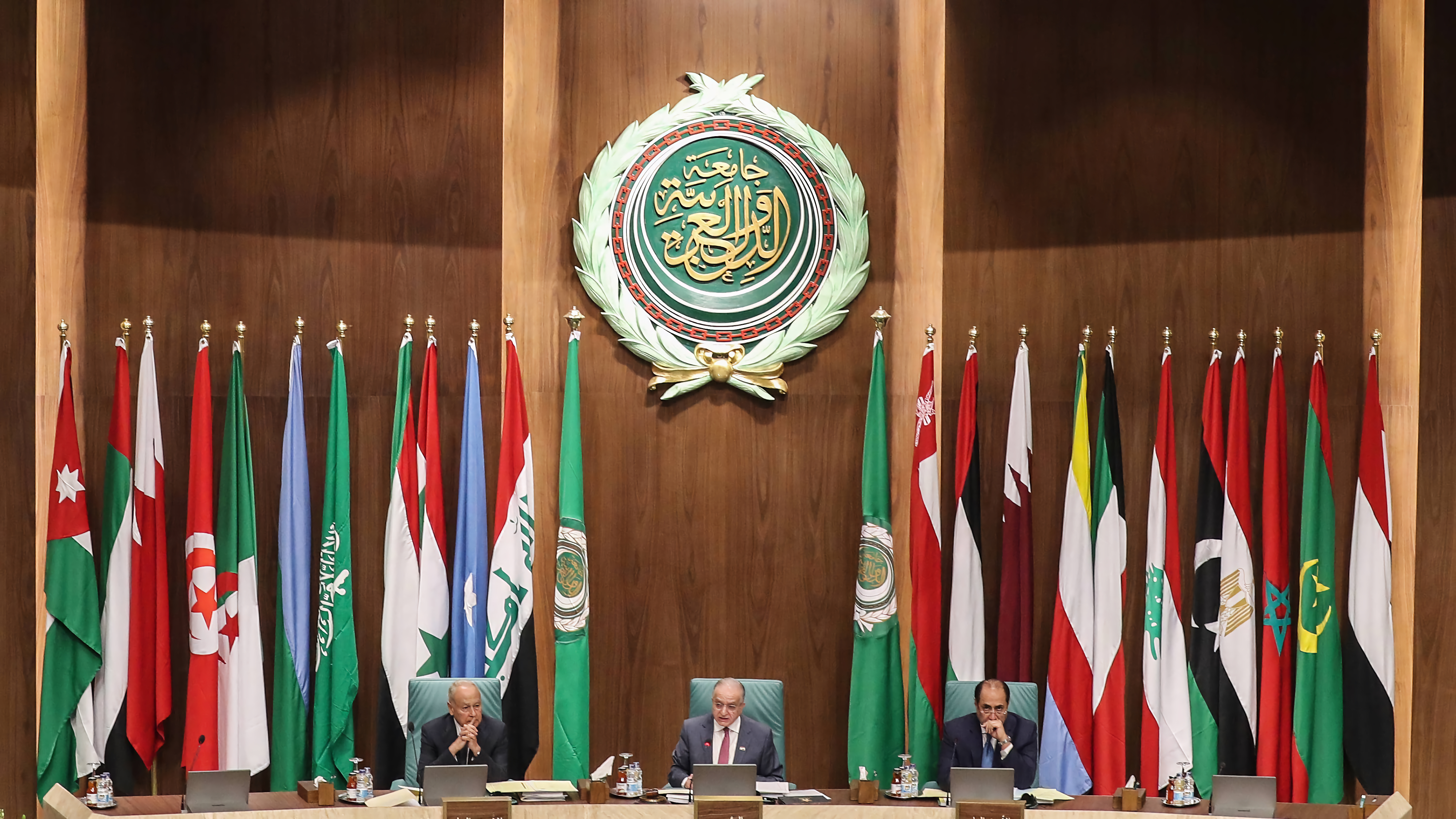


On May 7, 2023, 13 members of the Arab League voted to readmit Syria, which had been suspended since 2011. Few nations have faced the perils Syria has endured over the past 12 years. The so-called “Caesar” sanctions that were unilaterally imposed by the US precipitated a humanitarian crisis, a civil war has killed almost half a million civilians, and in February the country was further devastated by a massive earthquake that killed tens of thousands.
Syria was a founding member of the Arab League in 1945 and has now been readmitted after 11 years of suspension. This move is seen as a positive step towards normalizing relations with Syrian President Bashar Al Assad, ahead of a major conference on May 19th. According to Ahmed Aboul Gheit, Head of the Arab League, this readmission “brings the Arab side into communication with the Syrian government for the first time in years.” However, the United States, a major player in the civil unrest in Syria, has expressed its disapproval. State Department spokesman Vedant Patel said, “We continue to believe that we will not normalize our relations with the Assad regime, and we don’t support our allies and partners doing so either.”
It is unsurprising that the U.S. opposes any steps towards peace in Syria, as it could jeopardize their interests in the region. While Lenin’s Imperialism, The Highest Stage of Capitalism was written over a century ago, his critical insights may be applied to understanding the present situation in northeastern Syria.
In the section “Export of Capital,” Lenin explains how industrial capitalism (the export of goods) has been replaced by imperialism (the export of capital), where countries like Great Britain, France, and Germany invest in their colonial possessions for resource and commodity extraction. Lenin cites an excerpt from the Austro-Hungarian consulate in Brazil, which reported that “The Brazilian railways are being built chiefly by French, Belgian, British and German capital. In the financial operations connected with the construction of these railways, the countries involved stipulate orders for the necessary railway materials.”
While as part of its foreign policy, the United States does export something, it is not the same capital that Lenin described. The US exports weapons and weaponized information to foment instability in other countries to the benefit of arms makers and their political pawns abroad. The civil war in Syria has created an opportunity for the U.S. to seize oil and wheat fields in the areas controlled by the Syrian Defense Forces (SDF), one of the terrorist groups still battling Damascus.
The colonial model of sending massive armies to dominate countries and oppress their people has been dispensed with in favor of a “light footprint;” only around 1,000 U.S. troops have been stationed in Syria during this conflict, but there is still a parasitic relationship between the U.S. and the SDF.
Lenin states, “economic parasitism, and the formation of armies recruited from subject peoples. There is first the habit of economic parasitism, by which the ruling state has used its provinces, colonies, and dependencies in order to enrich its ruling class and to bribe its lower classes into acquiescence. And I shall add that the economic possibility of such bribery, whatever its form may be, requires high monopolist profits.”
While President Joe Biden claims the American presence in Syria is to combat ISIS, former president Trump was blunt about American geopolitical priorities in Syria. Addressing a police banquet in Milwaukee in 2019, Trump said, “People said to me, ‘Why are you staying in Syria?’ Because I kept the oil, which frankly we should have done in Iraq.”
A recent exposé by Steve Sweeney exposes just how much oil the U.S. is stealing from Rojava, the region occupied by its soldiers and allies. Sweeney writes, “Syrian oil production for the first half of 2022 amounted to 14.5 million barrels, an average of 80,300 a day. But it has accused the US occupying forces of the theft of 66,000 barrels a day, which amounts to just over 83% of Syria’s oil output.” While the theft of Syrian oil has been condemned as a war crime by nations like China, there is little sign the U.S. has been fazed by the opprobrium.
Following Lenin, we can see how the U.S. has managed even without a Syrian colony to be able to bribe the SDF with arms and military intelligence so as to gain access over and exploit 83% of the Syrian oil supply.

Former leaders who have attempted to pursue independence from the economic exploitation of the West faced deadly repercussions. As leader of Arab Socialist Ba’athist Libya, Muammar Gaddafi sought to break the entire continent of Africa free from the shackles of Western domination once and for all. Gaddafi’s plans for a centralized bank backed by gold constituted a major threat to the West’s continued exploitation of Africa. A NATO-coalition led by American neocons like Hillary Clinton murdered Gaddafi, overthrew his government, and destroyed what had been the most prosperous country in Africa, with the help of proxies linked to Al-Qaeda.
In the section “Critique of Imperialism,” Lenin describes how capitalism lays the foundation for the colonial people to emancipate themselves and create a unified national state. Lenin writes, “This movement for national independence threatens European capital in its most valuable and most promising fields of exploitation, and European capital can maintain its domination only by continually increasing its military forces.”
If we switch out “European” for “American,” this quote is salient to the situation in Syria today. Assad has felt the wrath of the U.S. for daring to pursue an independent path and resisting subjugation. Given that Syria and Russia already have close economic and military ties, and Syrian relations with China have expanded, we can expect the U.S. to redouble its support for Syria’s enemies. The U.S. did not relent in its illegal sanctions against Syria, even after a devastating earthquake, while Syria’s recent re-admittance into the Arab League has provoked American politicians to call for even harsher sanctions. However, the country’s re-admittance has more likely than not finally sounded the death knell for the U.S.’s failed dirty war. We can draw on the insights of Lenin to better understand this Arab rapprochement and its implications for the decline of empire.